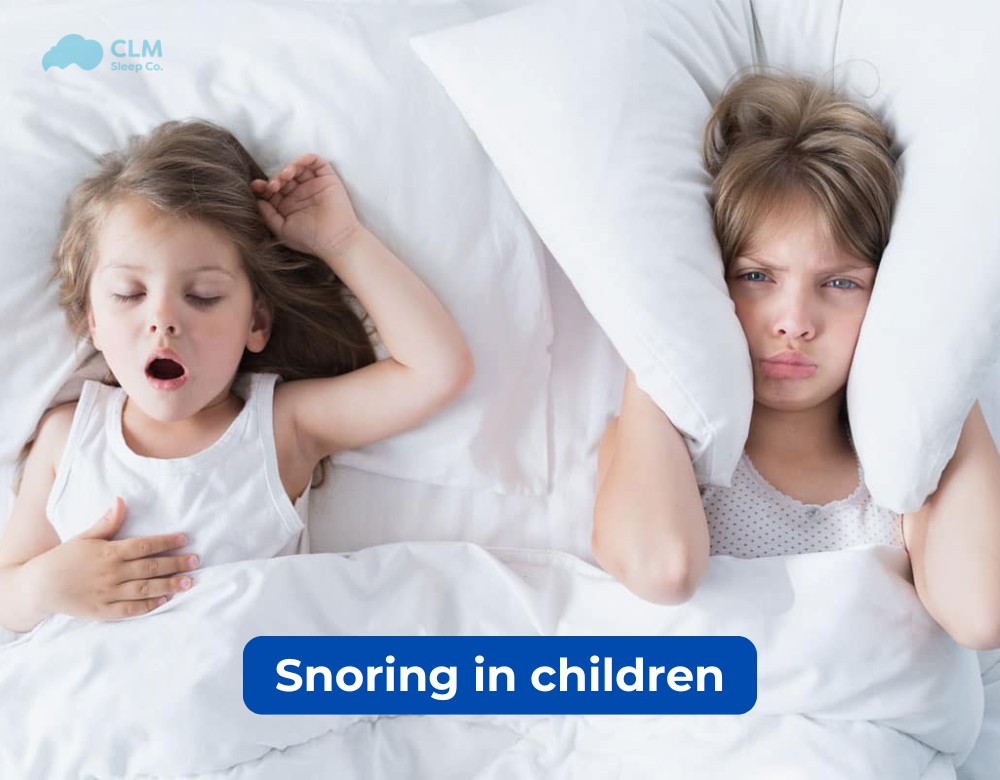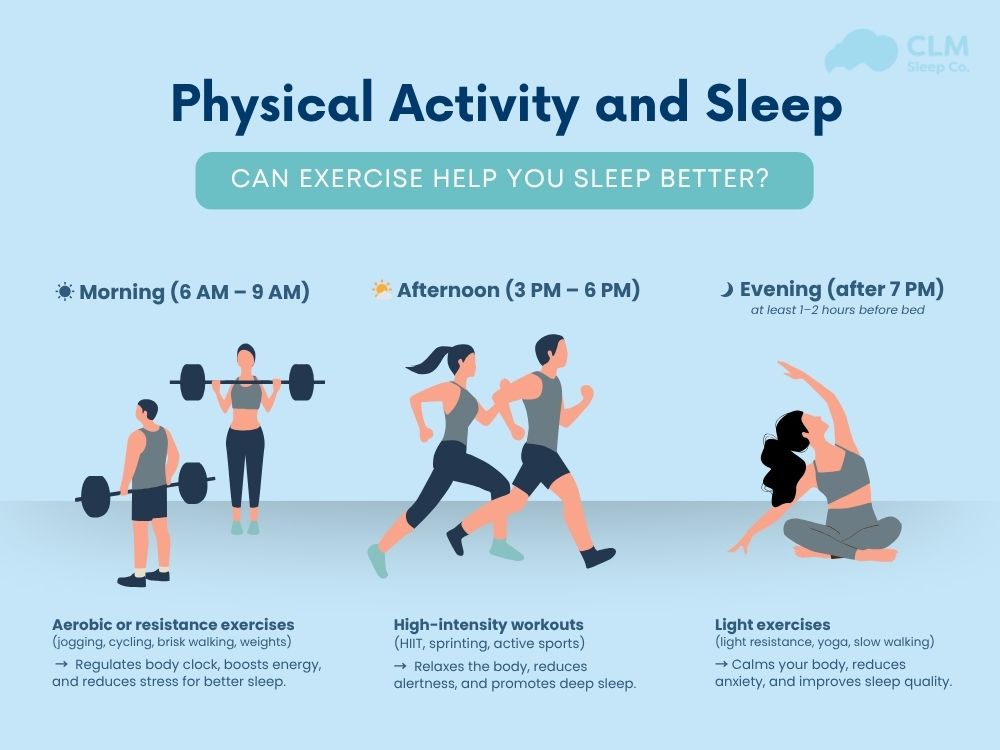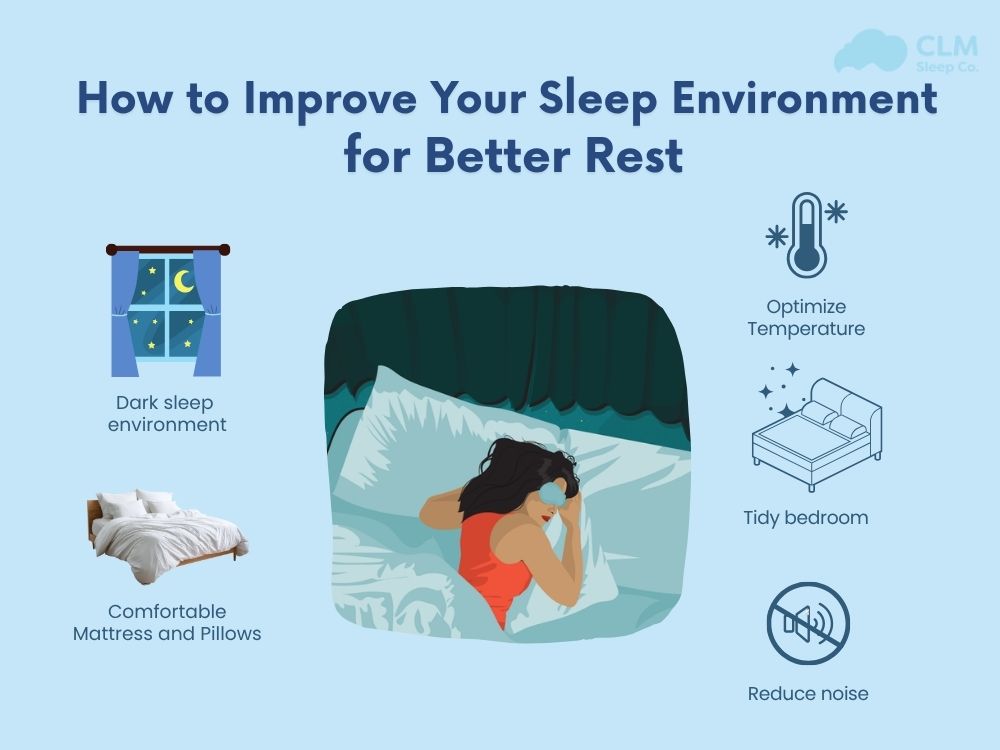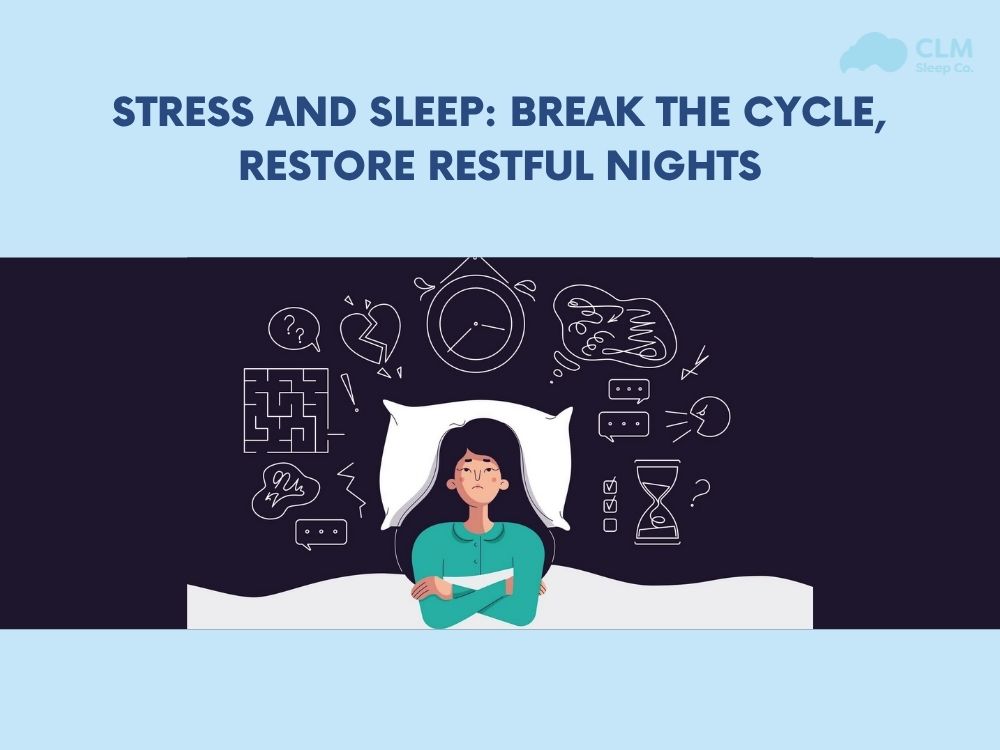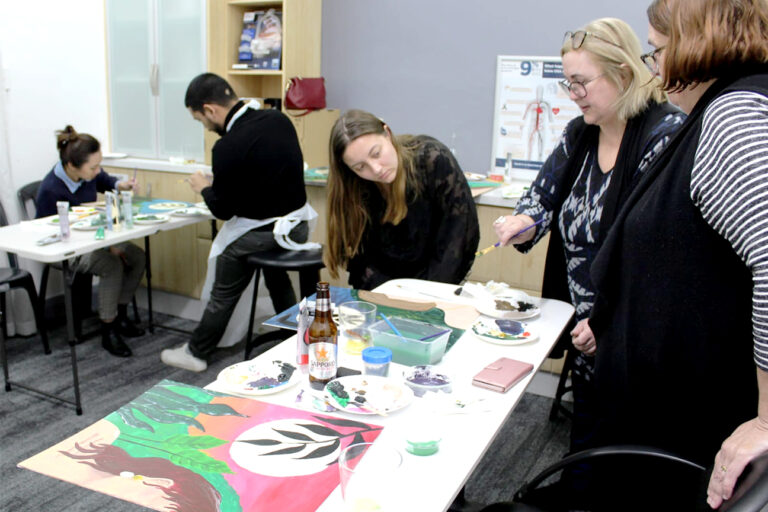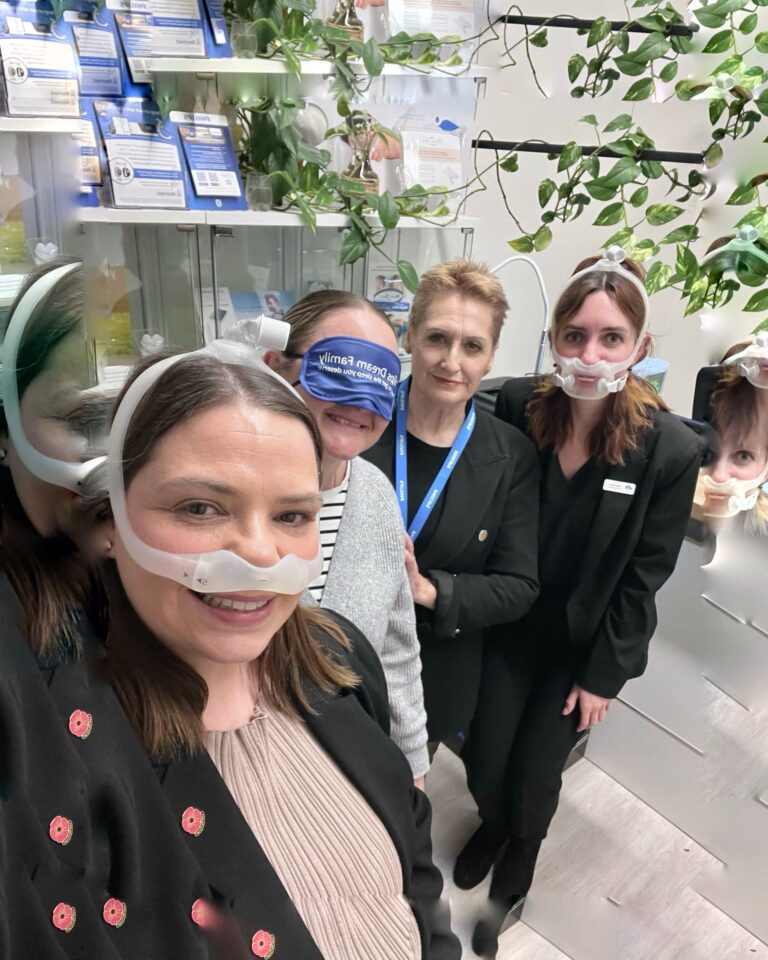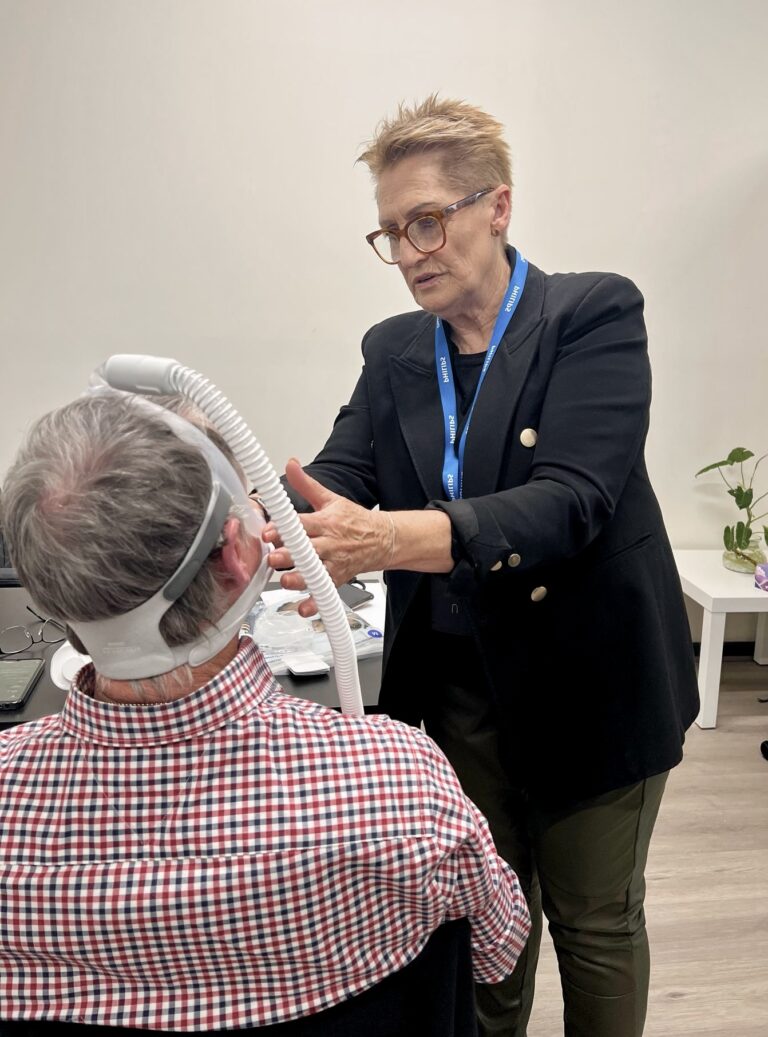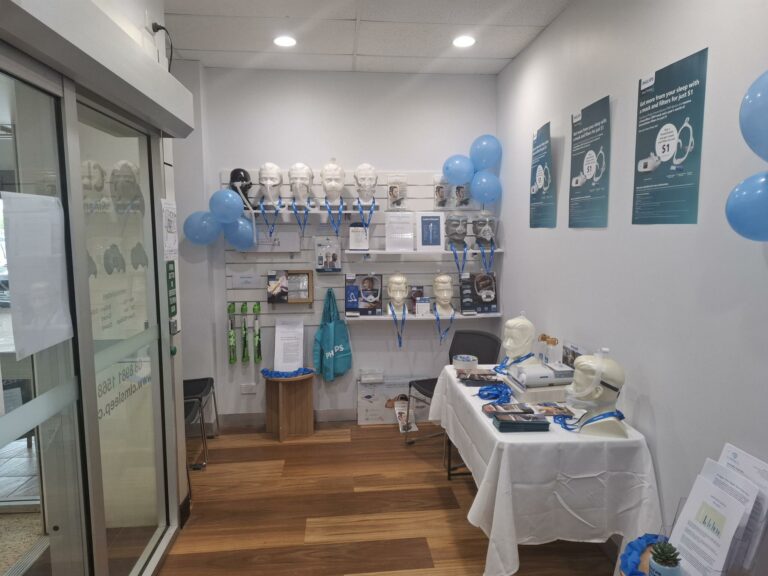Snoring not only occurs in adults but also in children. So what is snoring in children? How does this condition appear at each age? Let’s find out with CLM Sleep in the article below!
About Snoring in children
Sleep apnea is a condition in which an individual stops breathing for a short period while sleeping. Such events can take place several times during the night and interrupt one’s sleep, and thus have potential daytime ramifications. In infants, this condition itself is the most common cause in children, with enlarged tonsils or adenoids; these children can be surgically treated.
See more: Why Do People Snore? Common Causes and Solutions Explained
Infant snoring (0-1 year)
The article on snoring in infants reports that approximately 3% to 9% of children will snore on most nights by the age of three months. Snoring might be misinterpreted with some other breathing sounds and it may very well indicate very serious medical conditions, therefore a doctor should be sought if the baby has atypical symptoms. The causes of newborn snoring can be related to the structure of the airway, as well as environmental factors relating to where the person lives, or might be connected to a congenital condition, for instance, Down syndrome.
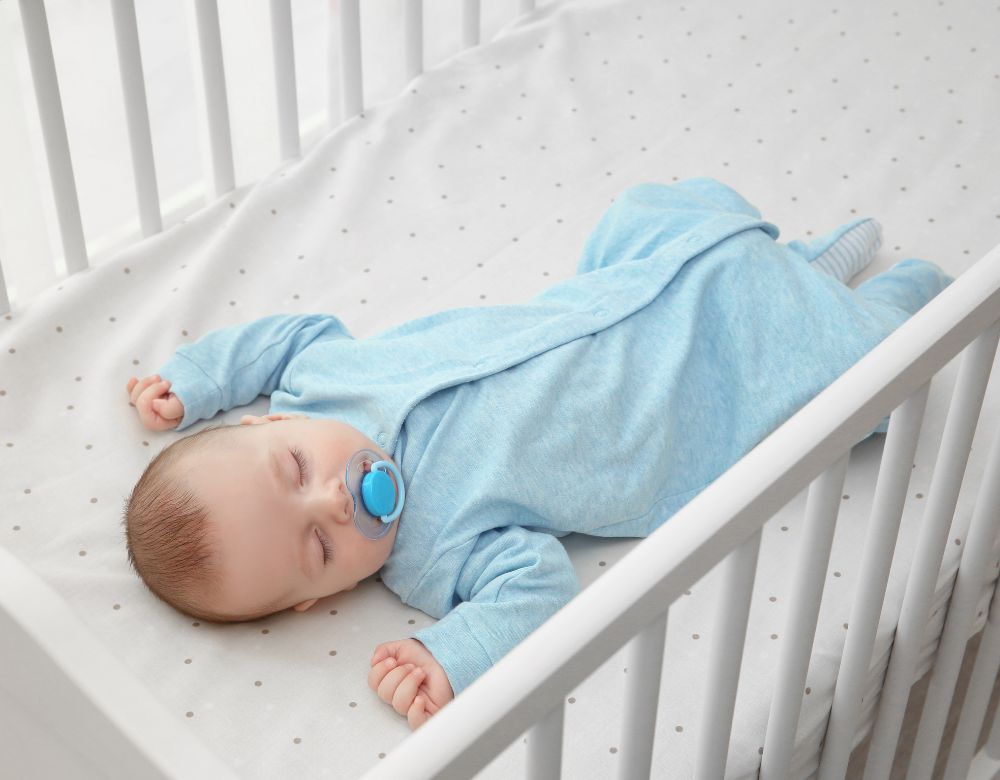
Toddlers (1-3 years)
While snoring in toddlers is normal, it can sometimes be a sign of a medical condition that needs treatment and your child should see a pediatrician for a referral to a pediatric ENT specialist.
The cause of snoring in toddlers is disrupted airflow from the nose, and mouth to the lungs or something blocking the flow when moving, the toddler will snore. In addition, the cause of snoring in toddlers is due to colds or allergies.
If your toddler’s snoring is loud and persistent, it could be a sign of a health problem. Parents should take their child to the doctor immediately for treatment.
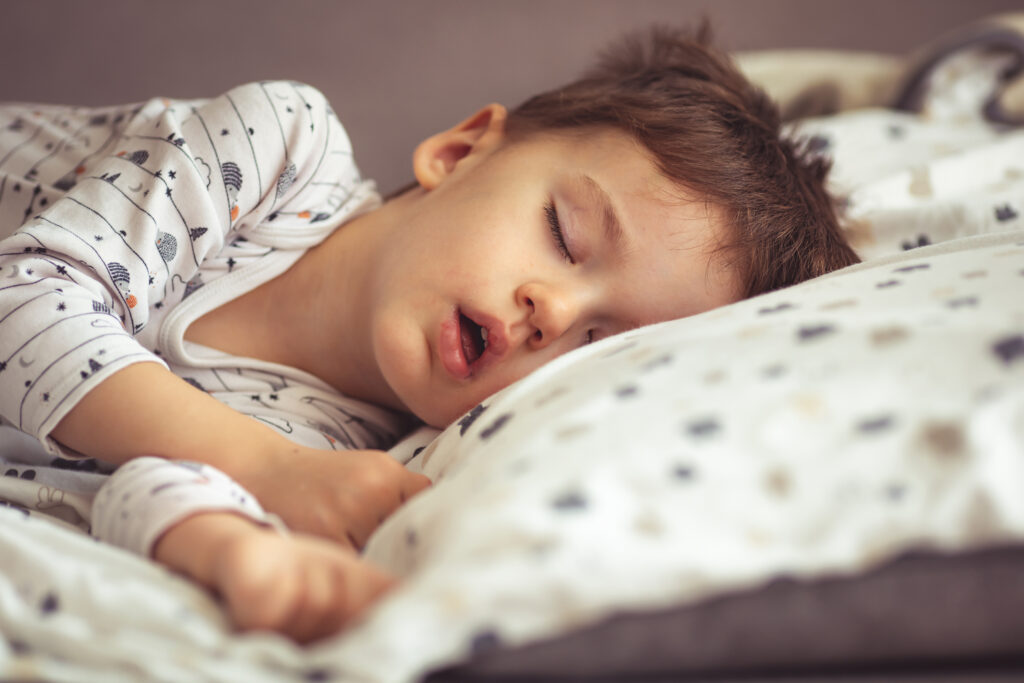
Preschoolers (3-5 years)
Snoring in preschool children may also be due to chronic hypertrophy of tonsils and adenoids, but the major factor increasing the risk in this age group is the possibility of Obstructive Sleep Apnea (OSA) conditions produced by blockages in the airway that cause interruptions in breathing during sleep—a source of very loud snoring, restless sleep, and daytime sleepiness. Allergies and chronic sinusitis may worsen snoring in this age group. The parents should, therefore, observe whether the child has additional symptoms such as gasping for air or pauses in breathing while sleeping at night.
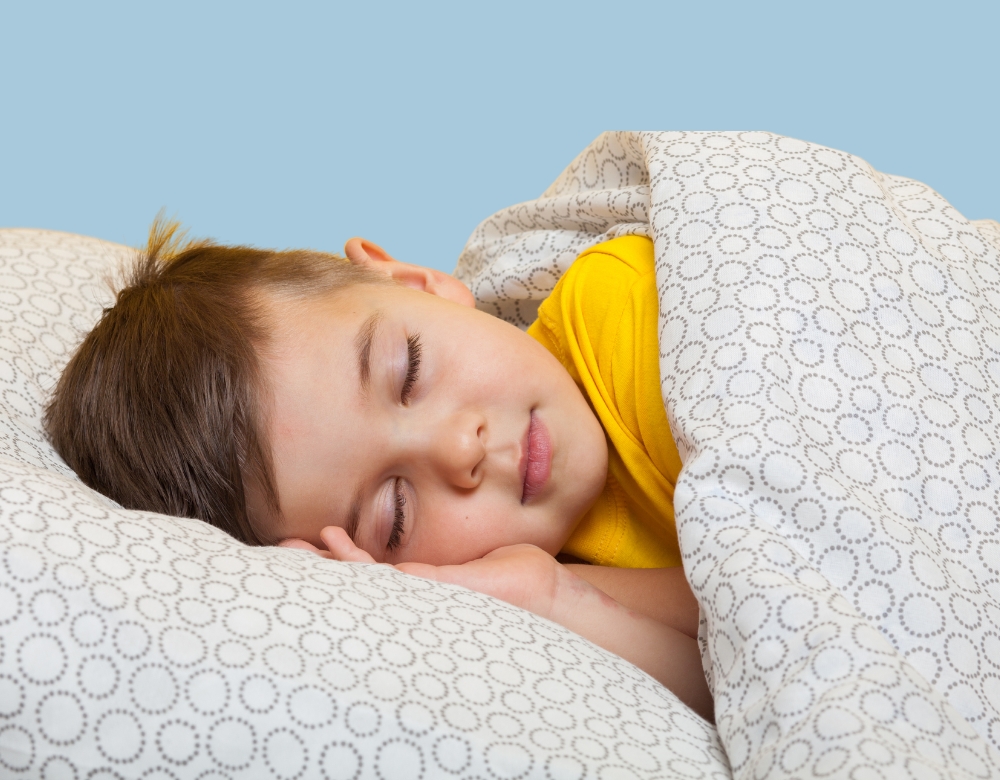
School-aged Children (6-12 years)
Among school-aged children, snoring can be associated with factors such as obesity, chronic sinusitis, and allergic rhinitis, conditions that force the size of the upper airway by inflammation and blockage. More important, this age group is at an increased risk for snoring which is related to lifestyle-associated factors, such as poor sleep hygiene or sleeping in awkward positions. Chronic snoring may be the cause of disturbed sleep cycles that reflect on cognitive functions and performance. Among other things, these include a narrow nasal passage and/or throat.
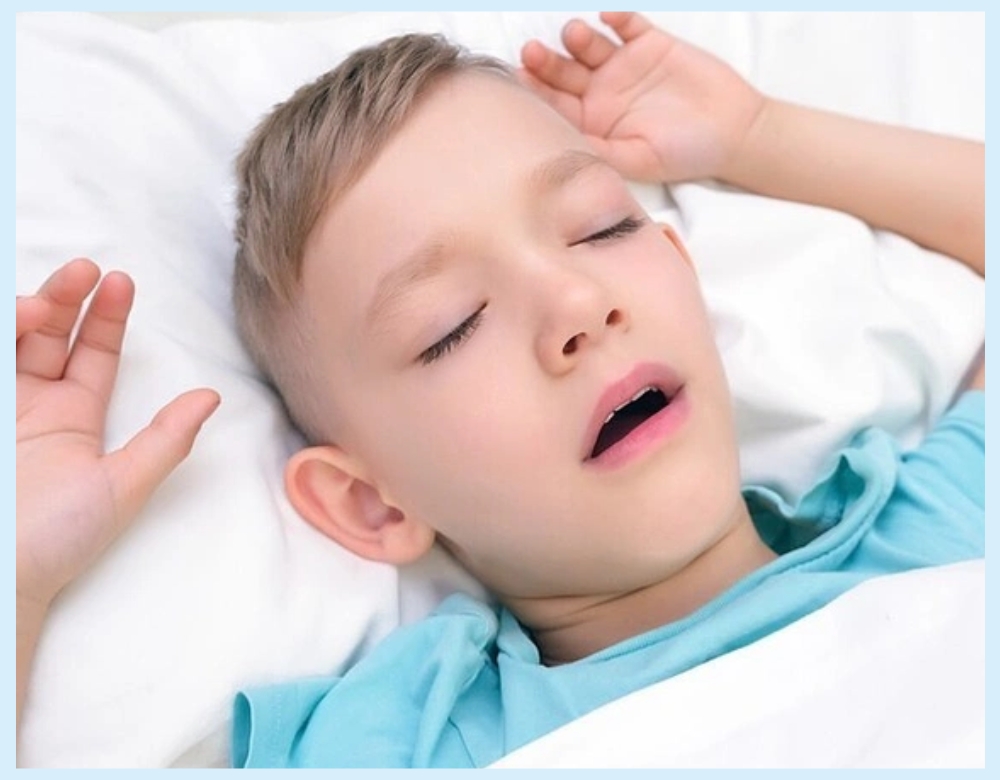
Teenagers (13-18 years)
Snoring in teenagers may result from lifestyle plus structural reasons. A major risk factor that has contributed to this stage of life snoring is being overweight, as the surplus flesh around the neck can obstruct normal breathing. These may also include poor sleep, with one staying up late or having irregular sleep patterns. Structural issues, e.g., deviated septum or larger tonsils manifest more at this age. Teens who are frequent snorers must also be diagnosed with sleep apnea since that can affect their academic performance as well as their mood and general welfare.

Is snoring in children different to snoring in adults?
Baby snoring differs from snoring in adults in several key aspects, particularly regarding causes and impact. Here are the main differences:
Causes of Snoring:
- Children: The primary cause of snoring in children is enlarged tonsils and adenoids which most commonly obstruct the airway. Other factors include a stuffy nose due to a cold or allergies, or redundancy in other structures (e.g., laryngomalacia). Certain children may even present with the syndrome of obstructive sleep apnea (OSA), in whom the airflow is intermittently hampered at the level of the pharynx during sleep.
- Adults: In adults, snoring is often related to lifestyle factors like obesity, alcohol consumption, smoking, or sedative use. Structural problems like a deviated septum or age-related muscle weakening also contribute. Obstructive sleep apnea is common among adults, especially those who are overweight.
Health Impact:
- Children: Snoring in children, especially when associated with sleep apnea, can affect their physical and cognitive development. Children who snore may have trouble learning, and concentrating, may be irritable, and experience daytime fatigue. If left untreated, this can negatively impact neurological development and increase the risk of other health issues.
- Adults: In adults, snoring related to OSA can lead to serious health problems like hypertension, heart disease, stroke, and diabetes. Snoring can also reduce the quality of life due to disrupted sleep and daytime fatigue.
Treatment Methods:
- Children: Treatment for snoring in children often focuses on addressing the underlying cause, such as surgical removal of the tonsils or adenoids in severe cases. Treating allergies or respiratory infections can also help reduce snoring.
- Adults: For adults, treatment may involve lifestyle changes like weight loss, avoiding alcohol, or using continuous positive airway pressure (CPAP) machines to manage sleep apnea. In some cases, surgery may be required.
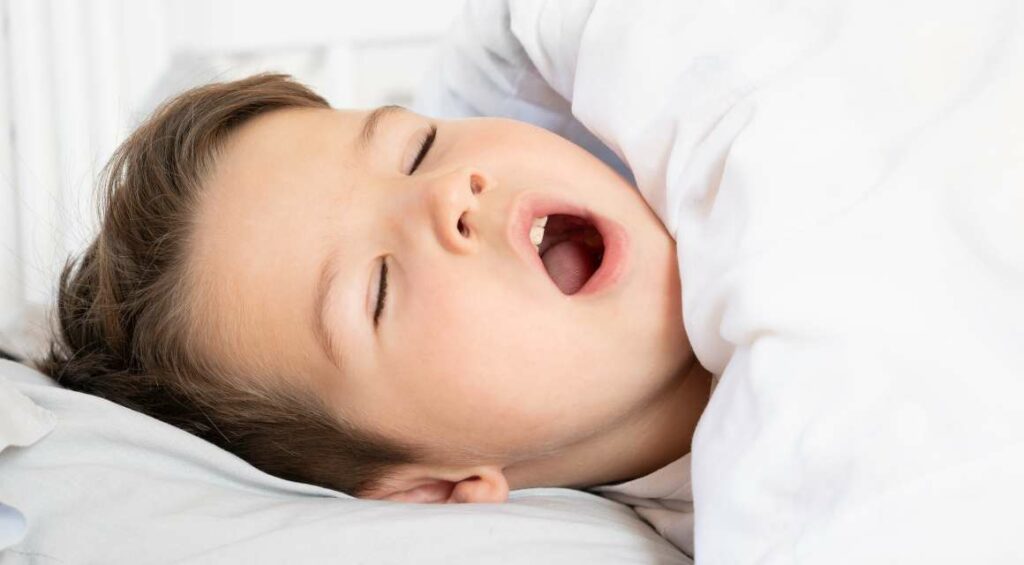
Can snoring be detrimental to kids? (Consequences)
It can. Although associated with obstructive sleep apnea (OSA), snoring can have the following implications in children:
Sleep Disruption
Especially if caused by OSA, snoring results in fragmented sleep. It, therefore, makes the quality of rest very low and denies children deeper stages of sleep, which are key for growth and development.
Cognitive and Behavioral Issues
In many children who snore, poor concentration and memory, learning difficulties, and often resembling hyperactivity with impulsivity and marked discrepancy with school performance may bring forth manifestations akin to attention deficit hyperactivity disorder (ADHD).
Daytime Fatigue
It may result in bad-quality sleep at night because of snoring and may leave children feeling tired during the day. Their ability to partake in daily activities will be very adversely influenced by their mood and behavior, which will also be affected.
Growth Problems
Interrupted sleep can interfere with the release of growth hormones, which primarily occur during deep sleep stages. Children who snore heavily and have disrupted sleep may experience stunted growth.
Cardiovascular Issues
In children, most cases of snoring are not so severe or are asymptomatic. In severe cases, chronic snoring with or without OSA is the most potent cause of high blood pressure and heart strain. Consequently, it puts the children at the highest risk of cardiovascular problems in their future lives.
Emotional and Social Impact
Poor sleep makes the child irritable and moody, and it can lead to an increase in emotional outbursts. Besides, it has some social effects; a child may not be able to make friends easily because the stress becomes too hard to handle.
Obesity Risk
The most important association of snoring-related sleep disorders in children is weight gain. Hormones that control hunger are greatly disturbed by a lack of sleep, which leads to overeating and eventually obesity.
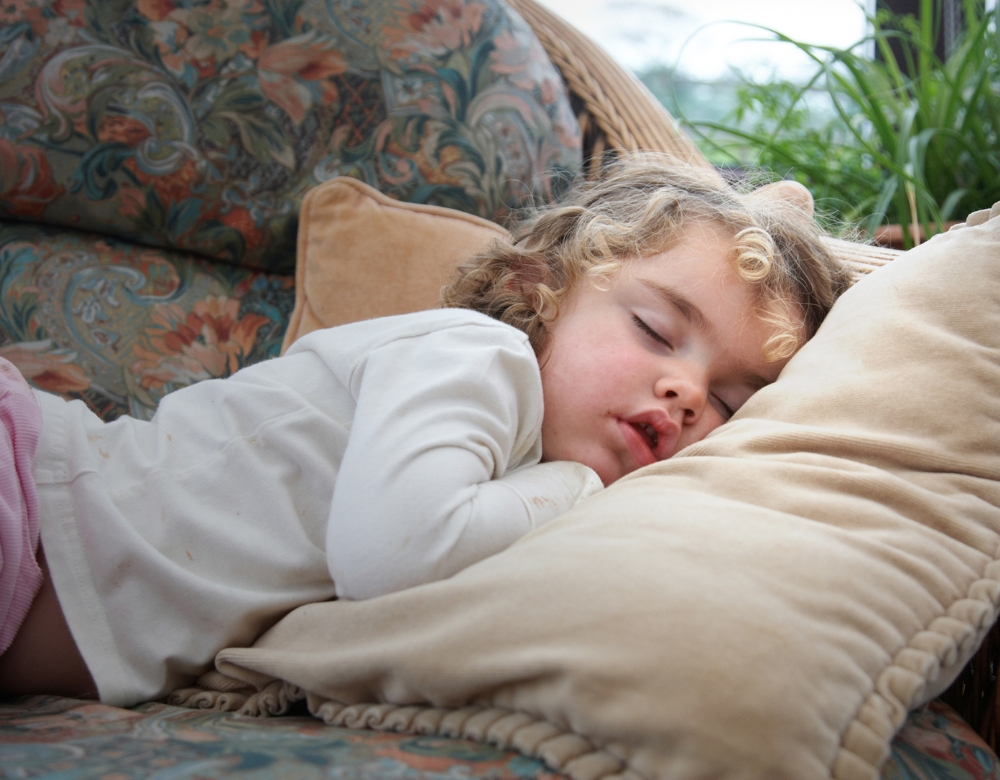
How can I find out what is causing snoring in children?
Family Doctor
- Initial Consultation: Your family doctor can perform an initial assessment, including a physical examination and questions about your child’s sleep patterns, overall health, and medical history.
- Identify Common Issues: They can evaluate for common causes of snoring, such as nasal congestion, allergies, or enlarged tonsils and adenoids.
- Referral: If needed, they may refer your child to a specialist for further evaluation.
Specialist Doctor
- Sleep Study (Polysomnography): This test monitors your child while he or she sleeps. It can be used to check several aspects of your child’s sleep, including breathing patterns, oxygen levels in blood, and heart rate, to diagnose conditions such as obstructive sleep apnea.
- Nasal Endoscopy: The test uses a small camera to assist in the evaluation of structural problems that may be obstructing sinuses, known as enlarged adenoids or deviated septum.
- Allergy Testing: In the case of suspected allergies, tests are performed to isolate possible allergens responsible for nasal congestion and snoring.
- Imaging Studies (X-ray, CT Scan): Identify the cause of snoring, which could be anatomical, for example enlarged adenoids or sinuses presenting with imaging tests.
Snoring in children treatment
Treatment for snoring in children usually depends on the causative factor. Tabs and Spray are common medications that are used to reduce or stop snoring. The other modes of treatment that help to decrease snoring are:
Therapies for Snoring in Children:
Lifestyle Changes:
- Weight Management: If a child is overweight, losing weight can help reduce snoring by decreasing pressure on the airway.
- Sleep Positioning: Encouraging the child to sleep on their side rather than on their back can reduce airway blockage.
Medications:
- Allergy Treatments: Antihistamines, nasal corticosteroids, or decongestants may be prescribed if allergies are contributing to snoring.
- Antibiotics: If snoring is caused by a sinus infection or other respiratory infection, antibiotics may help resolve the issue.
- Asthma Treatment: In cases where asthma contributes to snoring, asthma medications (like inhalers or oral steroids) can be prescribed to improve breathing.
Surgery treatment Snoring in Children
- Tonsillectomy and Adenoidectomy: Enlarged tonsils and adenoids are common causes of snoring in children. Removing them can improve airflow and eliminate snoring.
- Nasal Surgery: If a structural problem such as a deviated septum is identified, nasal surgery may be recommended to open the airway.
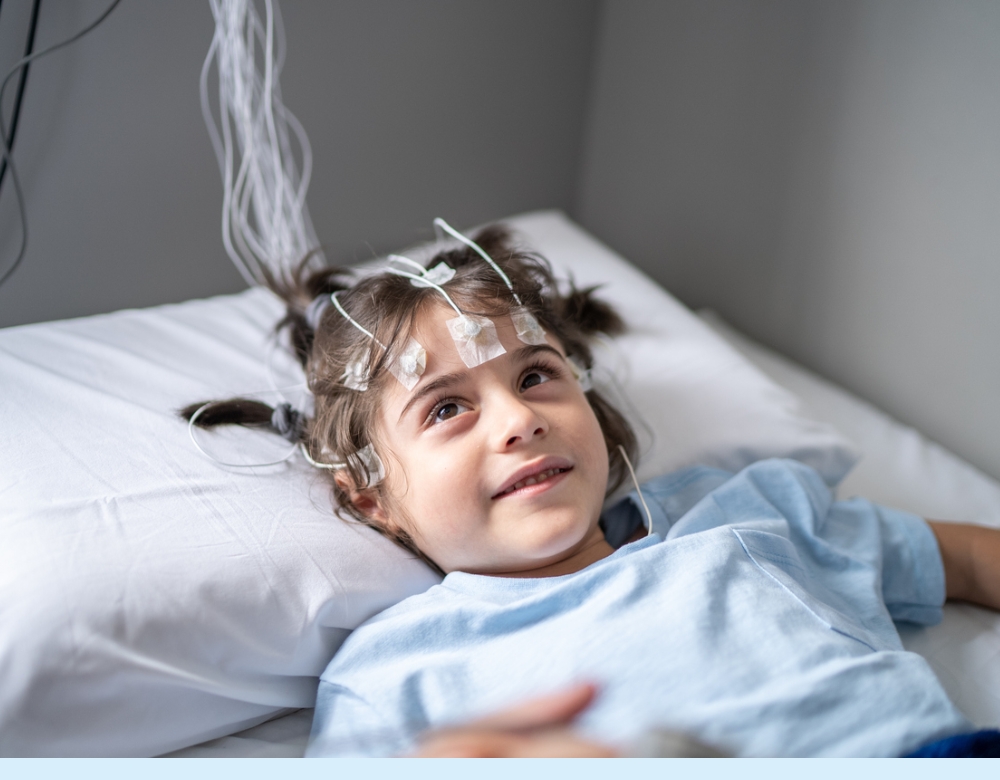
Anti Devices for Snoring in Children
Snoring in children can affect their sleep and health. Anti snoring devices made for kids can help reduce or stop snoring
Continuous Positive Airway Pressure (CPAP) Therapy
CPAP Machines: If the child has obstructive sleep apnea (OSA), a CPAP machine may be prescribed. The device delivers steady air pressure through a mask worn during sleep, helping to keep the airway open.
Nasal Dilators
Nasal Strips or Dilators: These can be used to widen the nasal passages, improving airflow and reducing snoring, especially in cases of mild nasal congestion.
Orthodontic Devices:
Oral Appliances: Custom-fitted dental devices can be used to reposition the jaw and tongue to keep the airway open during sleep. These are sometimes used in children with mild obstructive sleep apnea or other structural causes of snoring.
See more: Effective Snoring Mouth Guard Solutions
Allergy Control Measures
HEPA Air Filters: Installing air filters to reduce airborne allergens in the child’s bedroom can improve breathing and reduce snoring.
Bedding and Room Cleanliness: Regular cleaning and using hypoallergenic pillows, dress your baby in well-fitting Pyjamas & Sleepwear and mattresses can help control allergens and reduce nasal congestion that contributes to snoring.
Conclusion of the Snoring in Children article
In conclusion, snoring in children can range from a harmless occurrence to a sign of an underlying health issue, such as obstructive sleep apnea, allergies, or enlarged tonsils and adenoids. Early identification of the cause is crucial for proper treatment, which may involve lifestyle changes, medications, or even surgical intervention. For more valuable information, be sure to follow CMLSleep. Or find sleep improvement devices at Cpapdiscount.
